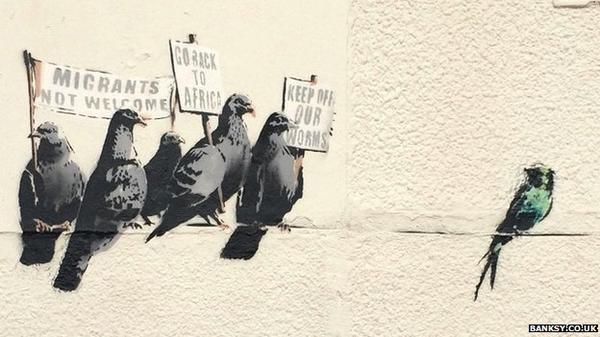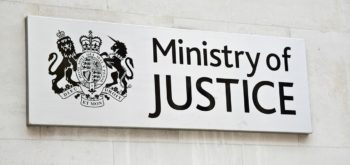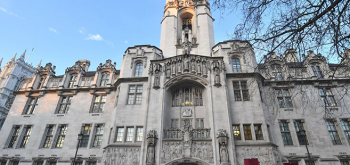Europe’s top human rights body has called on the UK to ensure trafficking victims receive legally aided advice and highlighted the impact of the 2013 cuts and ‘a dearth’ of lawyers prepared to take on ‘financially unviable’ work. The Council of Europe report highlights concerns over the impact of the Legal Aid, Sentencing and Punishment of Offenders Act which led to ‘a very significant reduction’ in legal aid providers. An ‘absence of legal aid’ prior to access to the national referral mechanism (NRM) which should identify victims of modern slavery ‘fails to provide possible victims with advice’ in order for them to make an informed choice ‘prevents them from giving properly informed consent’.
The Group of Experts on Action against Trafficking in Human Beings (GRETA) published its evaluation of the UK’s implementation of the Council of Europe’s Convention on Action against Trafficking in Human Beings. It found that the number of potential victims of trafficking referred to the NRM grew from 1,182 in 2012 to 10,613 in 2020. Nearly half of potential victims referred last year were children (4,946) – quadrupling the number since 2016 when 1,279 children were referred to the NRM.
GRETA urged the UK to apply the convention’s ‘non-punishment principle’ and investigate any allegations in cases of potential victims of trafficking recruited on national territory to join terrorist organisations abroad. Convention signatories must ensure there are no penalties for trafficking victims in relation to unlawful activities where they have been compelled. GRETA highlights section 45 of the 2015 Modern Slavery Act which provides for a statutory defence. However the availability of that defence was qualified by the legislation’s schedule containing ‘a list of more than 100 offences of various degrees of seriousness where the statutory defence cannot be used’ which gave ‘a rather narrow interpretation’ of the non-punishment principle, the groups said.
The report calls for ‘free and timely’ legal aid for victims of trafficking noting that ‘many trafficking survivors were unable to get legal advice when they need it, and legal aid is particularly difficult to access in rural areas’. It highlighted research identifying ‘legal aid deserts’ particularly outside London and noted that ‘even within London’ there were ‘capacity issues for good legal representatives’. ‘Even in areas with legal advisers competent to deal with matters related to modern slavery, waiting times could be well over eight weeks,’ the report continued. ‘Further, 78% of local authorities in England and Wales did not have a single community care legal aid provider in their area. In Scotland, all firms doing human trafficking related legal aid work appear to be based in Glasgow (with a very small number based in Edinburgh or Aberdeen).’
GRETA recorded that immigration cases with a trafficking element were considered ‘financially unviable’ by many legal aid lawyers ‘due to their length and the lack of clarity around whether the work will be funded’. ‘As a result, many providers are deterred from undertaking this work, which leaves victims and support workers struggling to secure lawyers,’ it said. The group noted that there was no Government data on how many victims of modern slavery and human trafficking have received legal aid. ‘According to NGOs and lawyers, the system for granting legal aid is bureaucratic, and decision-making is inconsistent and obstructive,’ the report said. ‘As a result, many victims are unable to get legal advice when they need it, and the litigation against traffickers is protracted. This is due to three main factors. First, a dearth of trusted legal advisors to take on cases. Secondly, a lack of timeliness in the advice, as legal aid is provided only once a survivor enters the NRM, but not before. Thirdly, the reduced scope of the current legal aid programmes, which exclude key remedies such as state compensation or welfare rights claims.’
Publicly funded legal advice was not available for victims of trafficking seeking compensation through the Criminal Injuries Compensation Authority other than under LASPO’s much criticised exceptional case funding scheme. GRETA said legal aid was ‘technically available’ however funding was ‘very difficult in practice and the great majority of requests are rejected,’ it said. Between April 2014 and April 2018, one group (ATLEU) made 30 applications for ECF in relation to CICA matters and all 30 were refused.
The report cites a 2021 report by the NGO Reprieve (here) which documents the circumstances by which numerous British families, currently detained in North East Syria, were recruited in the UK and potentially trafficked to and/or within territories controlled by ISIS. GRETA noted that the links between the fight against terrorism and the fight against trafficking and stresses the importance of the UK proactively investigating any allegation of trafficking, including cases of trafficking recruited on national territory to join terrorist groups abroad. Reprieve and other groups have called on the government to facilitate the repatriation of all British families detained in North East Syria in order to effectively assess and investigate their status as victims of human trafficking.
GRETA also stresses that Priti Patel’s new Plan for Immigration, widely seen as an anti-refugee bill, must be in line with commitments under the convention – notably, the the government needs to identify victims of trafficking among asylum seekers and provide them with assistance.







